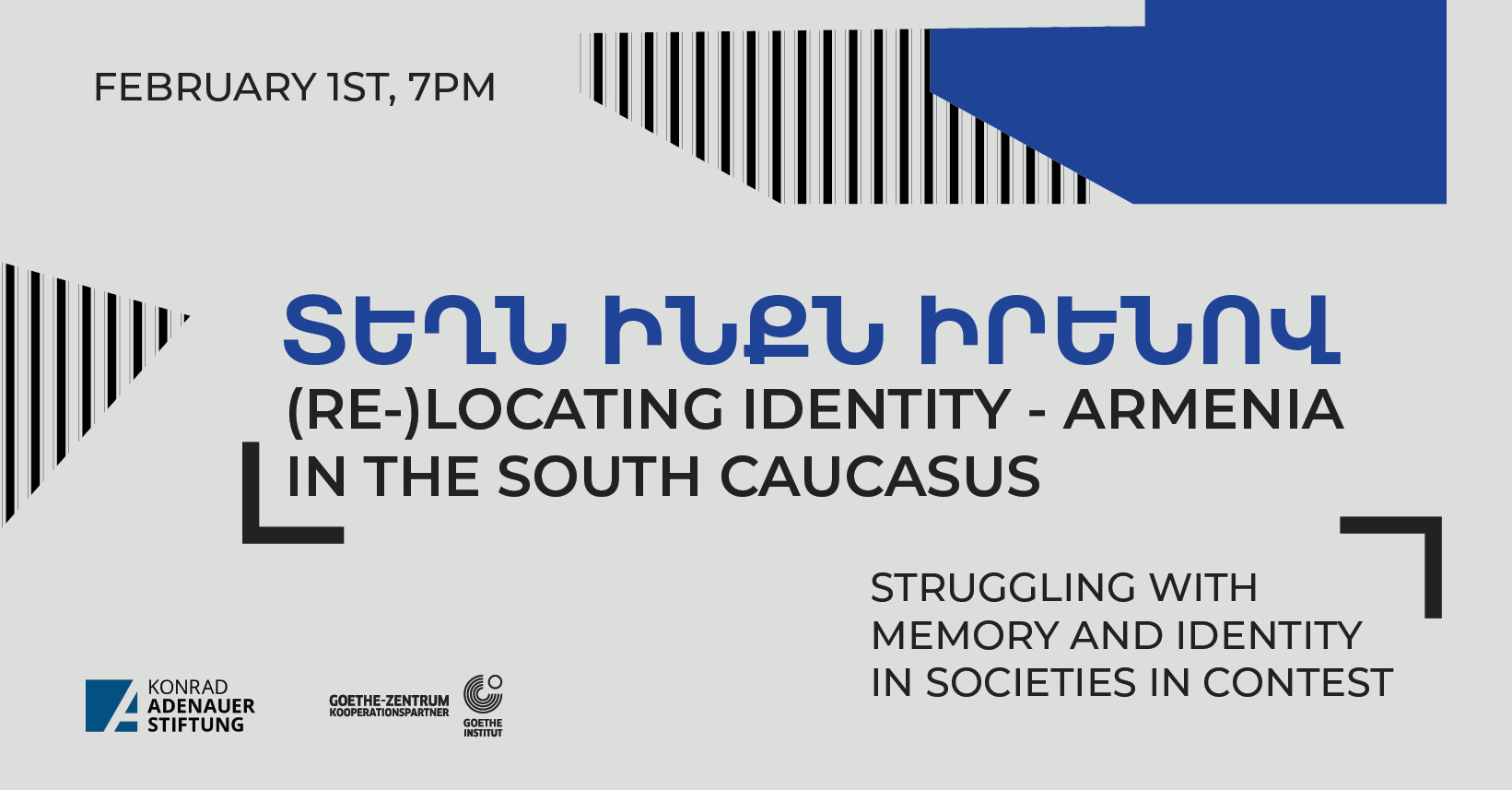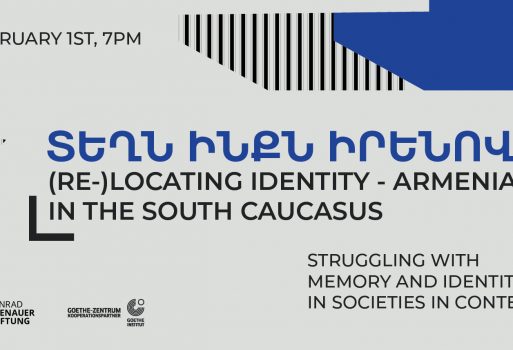Identity is not a fixed notion; but an evolving concept depending on the social, political, and cultural environment, among other aspects, in which a person or a group, e.g. a nation, finds itself. While questions like Who were your (grand)parents? or What is your mother tongue? are important factors defining a person’s identity, territorial references – both historically and actually – are in a similar way formative when it comes to national identity.
Reflecting on political and cultural identities through the prism of territory is very complicated in the South Caucasus in general and in Armenia in particular, where territories are disputed, and borders are not marked. But given the current political situation as well as imminent environmental threats, it is crucial to rethink political, cultural and personal identities from a standpoint of spatial categories.
How do you define the territory you identify with as a nation? How help- or harmful are historical references in this respect? How do places of commemoration create – or subvert – given cultural narratives of identity? How do (anthropogenic) changes in the environment influence our understanding of identity? Where do we need to delineate? And where can we create new, shared identities?
In times of deep turmoil, in the region (South Caucasus) but also globally, KAS and the Goethe Centre Yerevan invites you to discuss questions related to identity in Armenia and beyond with stakeholders and an interested public from the standpoint of locality, spatiality and the territory.
Տեղն ինքն իրենով – (Re-)locating identity – Armenia in the South Caucasus is designed as a series of events in the year 2024 and involves thinkers, artists and activists from Armenia, the South Caucasus region and Germany.
As first part of Տեղն ինքն իրենով. (Re-)locating identity – Armenia in the South Caucasus, a series of conversations on the topic of identity and locality in the South Caucasus organized by the Konrad Adenauer Foundation and the Goethe Center Yerevan, we invite you for a meeting with political theorist Hans Gutbrod and the presentation of his 2023 book “Ethics of Political Commemoration. Towards a New Paradigm” on February 1st at 7pm at the Goethe-Centre.
Collective memories of historical events and the past have not only become important sources to comprehend current political dilemmas but also serve as justifications for diverse political decisions. The more important the circumstance of memory and its impact on group identities, the more these „memories“ are detached from the past transforming into a problem of choices between the present and the future.
Where lies the fluctuating line separating historical study and commemoration of the past from contemporary politics? From which standpoint should we initiate discussion of these intricate questions and what are the examples, both successful and unsuccessful, of the politics of memory that we can draw upon?
In his book, which has a strong focus on the Aurora Prize for Awakening Humanity, Hans Gutbrod proposes that the world can learn from Armenia. At the same time, there are lessons from other countries that may be of interest for Armenia, in how memory is linked to justice, and how this ties into identity and locality.
Join us for this event in a series of conversations on key topics that the Goethe Center and Konrad Adenauer Foundation are planning for 2024!
Gutbrod’s presentation will be commented on by Yerevanian artist and curator Ruben Arevshatyan. The event will be moderated by anthropologist Gayane Shagoyan.
The event will be held in Armenian and German. Simultaneous translation will be provided.
Hans Gutbrod is a Professor at Ilia State University in Tbilisi, Georgia. He previously was the regional director of the Caucasus Research Resource Centers (CRRC). Hans has been working in the Caucasus region since 1999 and holds a Ph.D. in International Relations from the London School of Economics. He has written on the June 14 commemorations in Armenia, see here for English and here for the Armenian text.
Ruben Arevshatyan is an artist, curator and researcher. He is the president of AICA-Armenia and teaches at the Institute for Contemporary Art, Yerevan. He has published widely on contemporary art, architecture, and theory – mainly around topics on urban and cultural transformation of post socialist contexts. He has curated a number of international projects and exhibitions among which there were also Armenian National Pavilions in 54 Art Biennale in 2011 and 14 Architecture Biennale in 2014 in Venice, Sweet 60s research project, Trespassing Modernities (Salt Galata, Istanbul), A Parallel Modernity (as part of the framework of the São Paulo Biennale 2014), The City of Tomorrow (travelling exhibition that was shown in 2019-2020 at the Architectural Museum, Yerevan, Palace of Arts, Minsk, New Tretyakov Gallery, Moscow, ZK 19, Novosibirsk), scientific restoration of Sevan Writers’ Resort in the frames of Getty Foundation’s Keeping it Modern program.
Gayane Shagoyan is Senior Researcher, Department of Contemporary Anthropological Studies, Institute of Archaeology and Ethnography of National Academy of Sciences of Republic of Armenia.


